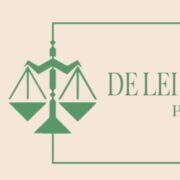Best Father's Rights Lawyers in Leiden
Share your needs with us, get contacted by law firms.
Free. Takes 2 min.
Free Guide to Hiring a Family Lawyer
List of the best lawyers in Leiden, Netherlands
About Father's Rights Law in Leiden, Netherlands
Father's Rights refer to the legal rights and responsibilities that fathers have regarding their children, especially in cases involving separation, divorce, parental responsibilities, and custody. In Leiden, as throughout the Netherlands, both parents are generally expected to participate in the upbringing of their children. Dutch law emphasizes the importance of ongoing contact between children and both parents, even after the parents' relationship has ended. Ensuring fair access, involvement in decision making, and protection of the child's best interests are key objectives of Father's Rights law.
Why You May Need a Lawyer
There are various circumstances where legal help may be important for fathers in Leiden. These include:
- Seeking custody or visitation rights after separation or divorce.
- Facing false accusations or disputes regarding paternity.
- Negotiating parental authority or co-parenting arrangements.
- Issues concerning child support obligations.
- Challenging or enforcing existing legal arrangements regarding the child.
- International child abduction or relocation cases.
- Problems with recognizing or establishing legal paternity.
Lawyers with expertise in Dutch family law can provide guidance, represent fathers in negotiations or court, and help ensure that their rights and the child's best interests are protected.
Local Laws Overview
Dutch family law, which applies in Leiden, is governed by the Dutch Civil Code (Burgerlijk Wetboek), especially Book 1. Key aspects relevant to Father's Rights include:
- Parental Authority (Ouderlijke Gezag): Both parents generally retain joint authority after divorce or separation, unless a court decides otherwise for the child’s welfare.
- Custody and Visitation: The law encourages both parents to remain involved, and arrangements are made based on the child's best interests.
- Legal Paternity (Erkenning): If parents are not married or in a registered partnership at the child’s birth, fathers must officially acknowledge (erkenning) the child to obtain legal rights and responsibilities.
- Child Support (Kinderalimentatie): Both parents are financially responsible for their children. The court can determine the amount if parents cannot agree.
- Contact Arrangements (Omgangsregeling): Fathers have the right to maintain regular and meaningful contact with their children, unless this is contrary to the child's welfare.
- Modification of Arrangements: If circumstances change, custody, visitation, and support arrangements can be reviewed and modified by the court.
The guiding principle is always the best interests of the child, but the rights and involvement of fathers are protected by law.
Frequently Asked Questions
Do fathers have equal rights to custody in Leiden?
Yes, Dutch law is based on the principle of joint parental authority, so both parents, including fathers, have equal rights and responsibilities, unless the court rules otherwise for the child’s welfare.
How is visitation determined in the Netherlands?
Visitation arrangements are usually made by agreement between the parents, but if they cannot agree, the court will decide based on what is in the best interests of the child. Regular contact with both parents is promoted.
What is "erkenning" and why is it important?
"Erkenning" refers to the official acknowledgment of legal paternity. It is important for unmarried fathers, as it establishes legal rights and responsibilities towards the child.
Can a father gain sole custody in Leiden?
While joint custody is the default, a father can apply for sole custody if it is in the child's best interests. The court will make a decision after considering the specific circumstances.
Is the father's consent required for international relocation with the child?
Yes, both parents with parental authority must consent to a child being taken abroad. Without consent, relocation is not permitted and the court may intervene.
How is child support calculated?
Child support is calculated based on the needs of the child and the financial means of both parents. If parents cannot agree, the court uses national guidelines to determine the amount.
What can fathers do if denied visitation?
If a father is denied visitation, he can seek enforcement through the court. Legal assistance is recommended to ensure his rights and the child's best interests are protected.
Can custody or visitation agreements be changed?
Yes, if there is a significant change in circumstances, either parent can request the court to modify existing arrangements.
How can a father establish paternity if there is a dispute?
A father can begin legal proceedings for paternity through the court, which may involve DNA testing and other evidence.
Are same-sex fathers recognized the same as biological fathers?
Yes, Dutch law recognizes legal parenthood for same-sex couples under certain circumstances, though the process may require legal steps such as adoption or official acknowledgment.
Additional Resources
If you need further information or support, the following organizations and governmental bodies can be helpful:
- Legal Aid Board (Raad voor Rechtsbijstand): Offers information about legal aid and assistance with finding a lawyer.
- Netherlands Judiciary (De Rechtspraak): Provides resources and procedural information about family law cases.
- Child and Family Protection Services (Veilig Thuis): Support services for families experiencing conflict or domestic issues.
- Gemeente Leiden (Leiden Municipality): Local government office for civil registration, official documents, and general family law inquiries.
- Fathers' Rights Associations: Various non-profit groups offer support, advocacy, and information on Father's Rights issues.
Next Steps
If you believe you need legal assistance regarding Father's Rights in Leiden, the following steps are recommended:
- Document Your Situation: Gather all relevant legal documents, correspondence, and information related to your case.
- Consult a Specialized Lawyer: Seek advice from a lawyer who specializes in Dutch family law and specifically handles Father's Rights cases.
- Contact Relevant Authorities: Engage with local authorities or organizations for guidance or mediation if appropriate.
- Consider Mediation: If both parties can work together, mediation can help resolve disputes amicably and often more quickly than court proceedings.
- Seek Support: Reach out to local organizations for information, advice, and support during the process.
Taking action as early as possible helps to ensure your rights are protected and increases the chances of a positive outcome for both you and your child.
Lawzana helps you find the best lawyers and law firms in Leiden through a curated and pre-screened list of qualified legal professionals. Our platform offers rankings and detailed profiles of attorneys and law firms, allowing you to compare based on practice areas, including Father's Rights, experience, and client feedback.
Each profile includes a description of the firm's areas of practice, client reviews, team members and partners, year of establishment, spoken languages, office locations, contact information, social media presence, and any published articles or resources. Most firms on our platform speak English and are experienced in both local and international legal matters.
Get a quote from top-rated law firms in Leiden, Netherlands — quickly, securely, and without unnecessary hassle.
Disclaimer:
The information provided on this page is for general informational purposes only and does not constitute legal advice. While we strive to ensure the accuracy and relevance of the content, legal information may change over time, and interpretations of the law can vary. You should always consult with a qualified legal professional for advice specific to your situation.
We disclaim all liability for actions taken or not taken based on the content of this page. If you believe any information is incorrect or outdated, please contact us, and we will review and update it where appropriate.














